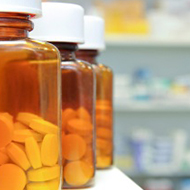UK-VARRS report ‘demonstrates power of working together’

The report shows that sales of antibiotics for food-producing animals fell by nine per cent between 2017 and 2018.
The National Office of Animal Health (NOAH) has welcomed the latest Veterinary Antibiotic Resistance Sales and Surveillance (UK-VARRS) report, which found that antibiotic sales for food-producing animals have fallen by 53 per cent in just four years.
NOAH chief executive Dawn Howard said the findings ‘demonstrate the power of working together’, adding that a comparable rise in vaccination shows an improved understanding of the role of good welfare and husbandry in preventing disease spread.
Published by the Veterinary Medicines Directorate (VMD), the report reveals that sales of antibiotics for food-producing animals fell by nine per cent between 2017 and 2018, and by 53 per cent since 2014. It also shows that overall sales of highest priority critically-important antibiotics (HP-CIAs) dropped an additional 19 per cent between 2017 and 2018, and 68 per cent since 2014.
Ms Howard said: “These results demonstrate the power of working together. Much work has been done through RUMA, and NOAH has been involved with its Targets Task Force. Our particular focus has been on the development of our AMBP (Animal Medicines Best Practice) training programme, launched last year and proving to be a really useful tool for farmers and vets, particularly since it is now a way for dairy farmers to be compliant with recent Red Tractor dairy standards changes.
“It is also encouraging to see, in parallel with the reduction in need for antibiotics, a parallel rise in vaccination of cattle and sheep, to one of the highest levels in seven years. We believe this shows farmers understand better the role good welfare and husbandry plays in helping reduce the risk of disease spread, and therefore the need for antibiotic treatments.”
Ms Howard stressed that while the figures demonstrate excellent progress, there is still work to do.
She continued: “NOAH will be leading the #VaccinesWork campaign this autumn, not only promoting the benefits of vaccination but also giving tips to ensure that vaccines are stored and used correctly to ensure that they retain their full efficacy.
“We will also be using the opportunity of European Antibiotic Awareness Day on 18 November to explain how our industry is united in action to promote better health and a reduced need for antibiotics. The prevention of disease wherever possible will have major animal health and welfare benefits and will also help to ensure that antibiotics remain effective in the future.”



 The Animal and Plant Health Agency (APHA) has updated its online reporting service for dead wild birds.
The Animal and Plant Health Agency (APHA) has updated its online reporting service for dead wild birds.